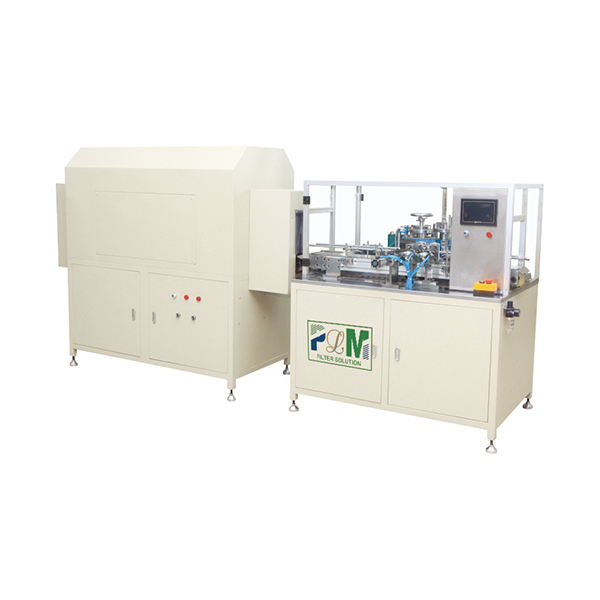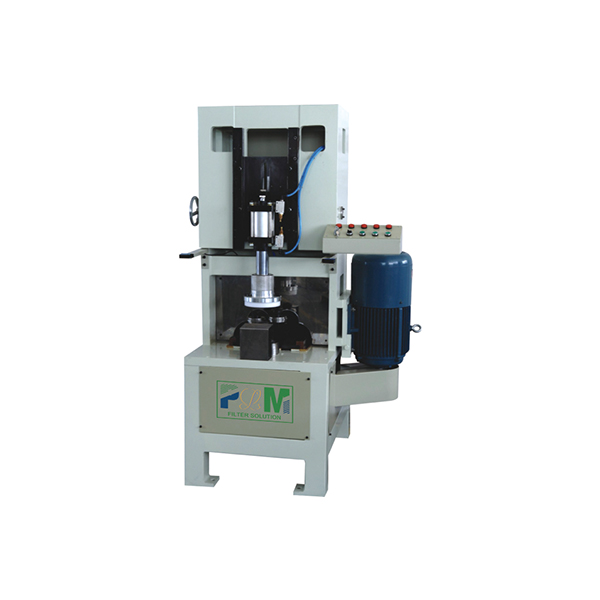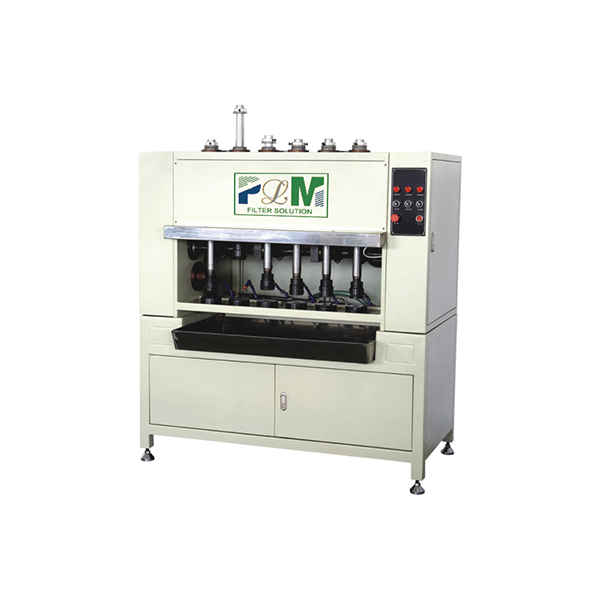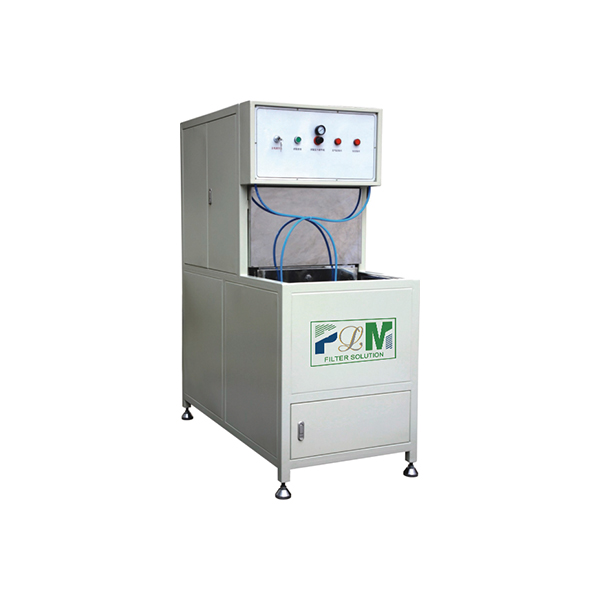Sep . 23, 2025 10:15 Back to list
Automatic PP Spun Filter Cartridge Making Machine - Efficient Production
Advancing Filtration: The Precision of Automated PP Spun Filter Cartridge Manufacturing
The global demand for clean water, purer air, and contamination-free industrial processes underscores the critical role of filtration technologies. At the heart of many advanced filtration systems lies the polypropylene (PP) spun filter cartridge, renowned for its excellent particulate removal efficiency, chemical resistance, and cost-effectiveness. Manufacturing these vital components requires precision, consistency, and scalability, qualities best achieved through a sophisticated pp spun filter cartridge making machine. This article delves into the intricate world of automated PP spun filter cartridge production, exploring its process flow, technical advantages, application scenarios, and the stringent standards that ensure product integrity and performance.
As industries pivot towards higher efficiency and greater sustainability, the evolution of machines like the professional air filter making machine and specialized equipment for water treatment is paramount. The integration of advanced engineering principles ensures that filter cartridges meet the rigorous demands of sectors ranging from petrochemicals to pharmaceuticals, providing reliable solutions for a cleaner, safer operational environment.
1. Process Flow of a PP Spun Filter Cartridge Making Machine
The manufacturing of PP spun filter cartridges is a highly automated and precise melt-blown extrusion process. The raw material is typically high-quality polypropylene (PP) granules, selected for its inertness, chemical resistance, and excellent filtration characteristics. The process ensures a graded pore structure, where the outer layers are looser to capture larger particles, and the inner layers are denser for finer particulate removal.
Key Manufacturing Steps:
- Material Feeding & Pre-heating: PP granules are fed into a hopper and conveyed to an extruder. In some advanced systems, pre-heating ensures uniform melting.
- Extrusion & Melting: The granules are heated and melted in the extruder, forming a viscous, homogeneous liquid. Precision temperature control is crucial to maintain polymer integrity and melt viscosity.
- Melt-blowing/Spinning: The molten PP is then pumped through a spinneret (a die with numerous fine orifices) under high pressure. High-velocity hot air is directed onto the molten polymer streams as they exit the spinneret, attenuating the fibers and creating very fine, continuous filaments.
- Fiber Deposition & Winding: These attenuated fibers are then blown onto a rotating mandrel (core) in a controlled manner. The machine meticulously winds the fibers, layer by layer, with varying density to create the desired graded pore structure. This step is critical for achieving consistent micron ratings (e.g., 1µm, 5µm, 10µm, 25µm, 50µm).
- Cooling & Solidification: As the fibers are deposited, they cool and solidify, forming a self-bonded, rigid structure without the need for binders or lubricants, ensuring chemical purity.
- Cutting & Ejection: Once the desired cartridge length and density are achieved, the finished filter cartridge is automatically cut and ejected from the mandrel, ready for quality inspection and packaging.
The entire process, driven by a modern pp spun filter cartridge making machine, is highly automated, minimizing human intervention and ensuring reproducible product quality. Testing standards, such as ISO 9001 for quality management and specific material compliance (e.g., FDA regulations for food contact applications), govern both the raw materials and the final product. The typical service life of these cartridges varies based on application and fluid quality but is designed for extended use with high dirt-holding capacity.
In typical application scenarios like industrial water pre-treatment, these machines demonstrate significant advantages. For instance, the consistent density gradient produced leads to higher dirt-holding capacity and longer service life compared to conventionally wound filters, contributing to energy saving by reducing filtration system downtime and maintenance. The inherent corrosion resistance of PP also makes these cartridges ideal for chemical processing environments.
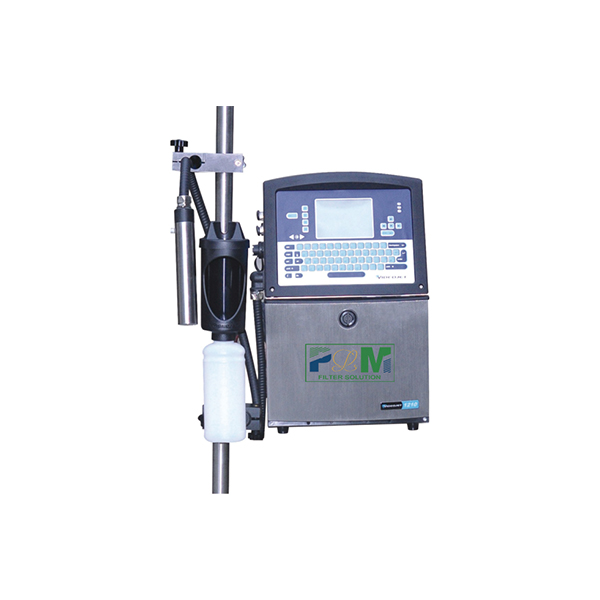
Illustration of a multi-spindle pp spun filter cartridge making machine in operation.
2. Technical Specifications and Performance Parameters
A state-of-the-art pp spun filter cartridge making machine is characterized by its robust design, advanced control systems, and ability to produce consistent, high-quality filter cartridges. Key parameters ensure efficient operation and adherence to stringent product specifications.
| Parameter | Value Range | Unit |
|---|---|---|
| Production Capacity per Spindle | 600 - 1000 | pcs/24h (10-inch) |
| Available Spindles | 1 to 10+ | units |
| Filter Cartridge Length | 10, 20, 30, 40, 50, 60 | inches |
| Outer Diameter (OD) | 55 - 120 | mm |
| Inner Diameter (ID) | 28 - 40 | mm |
| Micron Rating Options | 1, 5, 10, 25, 50, 100 | µm |
| Power Consumption | 20 - 50 (depending on spindles) | kW |
| Material Used | 100% Food Grade PP Granules | - |
| Operating Temperature Range | 4 - 80 | °C |
These specifications highlight the versatility and capability of modern filter cartridge production equipment. The ability to control parameters like fiber diameter, winding speed, and air pressure directly influences the final cartridge's micron rating, porosity, and structural integrity, ensuring peak performance in demanding applications. The precise engineering involved draws parallels with the high standards expected from a 2014 - car air filter making machine or a modern paper folding machine for air filter manufacturing.
3. Key Technical Advantages
- Consistent Quality & Precision: Advanced PLC control systems ensure uniform melt-blown fiber distribution and density gradients, resulting in consistent micron ratings and reproducible filtration performance across batches.
- High Production Efficiency: Multi-spindle configurations allow for simultaneous production of multiple cartridges, significantly increasing output and reducing per-unit cost. Production rates can reach hundreds of cartridges per day per spindle.
- Energy Efficiency: Optimized heating elements, insulation, and motor designs reduce power consumption, aligning with modern industrial demands for energy saving and sustainable operation.
- Material Optimization & Waste Reduction: Precise control over raw material feeding and melting minimizes material waste. The self-bonding nature of PP spun filters eliminates the need for additional binders, enhancing material purity and reducing disposal costs.
- Versatility & Customization: Modern pp spun filter cartridge making machine models offer flexibility to produce cartridges of various lengths, diameters, and micron ratings, catering to diverse application requirements without extensive retooling.
- Durability & Corrosion Resistance: The use of 100% pure PP ensures exceptional chemical compatibility and corrosion resistance, prolonging cartridge life even in aggressive fluid environments.
- Reduced Labor Costs: High levels of automation, from raw material feeding to finished product ejection, significantly reduce the need for manual labor, streamlining operations and enhancing safety.
4. Application Scenarios Across Industries
PP spun filter cartridges are workhorses across numerous industries due to their broad chemical compatibility and efficient particulate removal. A high-quality pp spun filter cartridge making machine enables manufacturers to serve critical sectors reliably.
- Water Treatment: Essential for pre-filtration in reverse osmosis water filter machine systems, municipal water treatment plants, well water filtration, and industrial wastewater treatment. They effectively remove sediment, rust, sand, and other suspended solids, protecting downstream equipment and improving water quality. This includes applications in pure water treatment filter machine setups.
- Food & Beverage: Used in clarification of juices, syrups, edible oils (e.g., sunflower seeds oil filter machine applications), and process water. The 100% PP construction ensures no fiber migration or extractables, critical for product purity and compliance with food safety regulations.
- Chemical & Petrochemical: Filtration of acids, bases, solvents, and other aggressive chemicals. Their robust PP material provides excellent resistance to a wide range of corrosive fluids.
- Pharmaceutical & Biotechnology: Pre-filtration steps for high-purity water systems, buffer solutions, and culture media. While not sterile filters themselves, they significantly reduce bioburden, protecting more expensive final filters.
- Electronics Industry: Filtration of ultrapure water used in semiconductor manufacturing and other sensitive electronic component production processes, where even minute particles can cause defects.
- Industrial Air Filtration: While primarily for liquids, some specialized melt-blown PP media can be part of advanced air filter air filter making machine systems or used in compress air filter making machine solutions, particularly for oil mist or particulate removal in compressed air lines.

PP spun filter cartridges ensure purity in diverse industrial applications.
5. Industry Trends & Market Dynamics
The filtration industry is undergoing continuous evolution, driven by stricter environmental regulations, increasing awareness of water and air quality, and the push for operational efficiency. Key trends influencing the demand for advanced pp spun filter cartridge making machine technology include:
- Sustainability and Green Manufacturing: Growing emphasis on eco-friendly materials and production processes. PP is highly recyclable, aligning with circular economy principles. Machines that optimize energy and material usage are highly valued.
- Automation and Industry 4.0 Integration: The shift towards fully automated production lines, incorporating IoT sensors for real-time monitoring, predictive maintenance, and data analytics. This improves operational efficiency and reduces downtime, mirroring the advancements seen in screw press sludge dewatering machine and other heavy industrial equipment.
- Demand for Finer Filtration: Increasing need for sub-micron filtration to meet stringent purity requirements in pharmaceuticals, electronics, and specialized chemical processes. This pushes the boundaries of melt-blown technology for achieving tighter pore size distributions.
- Longer Service Life & Higher Dirt-Holding Capacity: Customers seek filter cartridges that last longer, reducing replacement frequency and associated labor costs. Machines capable of producing graded-density filters excel in this aspect.
- Customization and Flexibility: Manufacturers require the ability to quickly adapt production to different filter sizes and specifications to cater to diverse client needs. Modular machine designs are becoming increasingly popular.
6. Vendor Comparison for PP Spun Filter Cartridge Making Machines
Selecting the right vendor for a pp spun filter cartridge making machine is a strategic decision that impacts production quality, operational efficiency, and long-term profitability. While specific vendor names are not discussed here, critical evaluation criteria include:
- Technological Advancement: Evaluate the machine's control system (PLC, HMI), energy efficiency, precision of temperature and winding control, and ability to produce consistent graded density.
- Reliability & Durability: Assess the quality of components (e.g., extruders, pumps, motors) and the overall build quality to ensure long operational life and minimal downtime.
- After-Sales Support: Availability of technical support, spare parts, and maintenance services is crucial for uninterrupted production.
- Customization Options: The ability to adapt the machine for specific cartridge lengths, diameters, and micron ratings.
- Certifications & Compliance: Ensure the machine and its components comply with relevant international safety and quality standards (e.g., CE, ISO).
- Cost-Effectiveness: Beyond the initial investment, consider operational costs (energy, labor, maintenance) and the return on investment through superior product quality and efficiency.
| Feature | Entry-Level (e.g., 1-2 Spindles) | Mid-Range (e.g., 3-5 Spindles) | High-End (e.g., 6-10+ Spindles) |
|---|---|---|---|
| Production Capacity (10" pcs/24h) | 600 - 2,000 | 1,800 - 5,000 | 3,600 - 10,000+ |
| Automation Level | Semi-automatic to Basic Full Automation | Full Automation with HMI | Advanced Full Automation, Smart Controls, IoT Ready |
| Energy Consumption (kW) | 20 - 35 | 30 - 50 | 45 - 90+ (optimized per unit) |
| Footprint (Approx.) | Compact (e.g., 3m x 1m) | Medium (e.g., 5m x 1.5m) | Large (e.g., 8m+ x 2m) |
| Filter Spec. Flexibility | Limited Range | Good Range, Manual Adjustments | Broad Range, Automated Parameter Changes |
7. Customized Solutions and Engineering Support
Recognizing that every B2B client has unique production requirements, leading manufacturers of pp spun filter cartridge making machine offer extensive customization and engineering support. This ensures that the equipment perfectly integrates with existing infrastructure and meets specific operational goals.
- Tailored Production Capacity: From single-spindle setups for niche markets to multi-spindle behemoths for high-volume producers.
- Specific Filter Dimensions: Machines can be configured to produce non-standard lengths (e.g., 10", 20", 30", 40", 50", 60") and diameters, catering to unique housing requirements.
- Micron Rating Flexibility: Advanced control systems allow for precise adjustment of fiber characteristics to achieve a wide range of micron ratings, from sub-micron to coarse filtration.
- Integration with Ancillary Equipment: Custom solutions for automated material handling, core insertion, packaging, and integration with existing factory automation systems.
- Process Optimization: Engineering teams work with clients to optimize process parameters for specific PP grades or desired filter performance characteristics, ensuring optimal output and quality.
8. Application Case Studies
Real-world deployments demonstrate the tangible benefits of investing in a high-quality pp spun filter cartridge making machine.
Case Study 1: Municipal Water Treatment Efficiency Upgrade
A large municipal water treatment plant in Southeast Asia sought to enhance its pre-filtration stage for improved sediment removal and extended RO membrane life. By implementing a high-capacity, 8-spindle pp spun filter cartridge making machine, they were able to produce custom-designed 20-inch, 5-micron cartridges on-site. This move reduced procurement lead times by 60%, cut cartridge costs by 35%, and, critically, improved the consistency of filter quality, leading to a 15% increase in the operational lifespan of their subsequent RO membranes. The localized production also significantly lowered their carbon footprint associated with shipping.
Case Study 2: Chemical Processing Plant – Corrosive Fluid Filtration
A European specialty chemicals manufacturer faced challenges with inconsistent filtration in a highly corrosive acid stream. Their previous filters often degraded prematurely, causing production interruptions. After installing a specialized pp spun filter cartridge making machine capable of using high-grade chemical-resistant PP and producing robust, graded-density cartridges, they achieved a significant improvement. The new filters exhibited superior resistance to the corrosive environment and maintained consistent flow rates over longer periods, leading to a 25% reduction in filter replacement frequency and associated maintenance costs.

Automated filter cartridge production ensures reliability for critical applications.
9. Ensuring Google Standards: Expertise, Experience, Authoritativeness, Trustworthiness
For B2B decision-makers, choosing industrial equipment like a pp spun filter cartridge making machine requires confidence rooted in expertise, proven experience, undeniable authoritativeness, and transparent trustworthiness.
Expertise & Experience:
Our engineering team possesses decades of cumulative experience in melt-blown technology, polymer science, and industrial automation. This deep knowledge translates into machines designed for optimal performance, utilizing precision components and advanced control algorithms. Our track record includes successful installations globally, catering to diverse filtration needs and production scales.
Authoritativeness:
- Certifications: Our manufacturing processes adhere strictly to ISO 9001:2015 quality management standards. Components are sourced from certified suppliers, and final products meet relevant CE directives and industry safety norms.
- Industry Recognition: Decades of operation have established us as a reliable partner for filter manufacturers worldwide, consistently delivering innovative and robust solutions.
- Test Data & Performance Guarantees: Each machine undergoes rigorous testing, with comprehensive performance data provided, including production capacity, energy consumption, and product quality metrics, ensuring verifiable results.
Trustworthiness:
Frequently Asked Questions (FAQ):
- Q: What is the lead time for a new PP spun filter cartridge making machine?
- A: Standard models typically have a lead time of 8-12 weeks from order confirmation to shipment, depending on customization. Expedited options may be available upon request.
- Q: What warranty is provided with the equipment?
- A: We offer a standard 12-month warranty on mechanical and electrical components, excluding wear parts. Extended warranty options and service contracts are also available.
- Q: What kind of after-sales support can I expect?
- A: Our comprehensive support includes remote technical assistance, on-site installation and commissioning services, operator training, and readily available spare parts from our global network. We are committed to minimizing your downtime.
- Q: Can the machine produce different micron ratings?
- A: Yes, our advanced control systems allow for easy adjustment of parameters to produce cartridges with various micron ratings (e.g., 1µm, 5µm, 10µm) and graded density profiles.

Global support and certified quality build trustworthiness in equipment procurement.
Conclusion
The continuous evolution of the pp spun filter cartridge making machine marks a significant advancement in filtration technology. By leveraging automation, precision engineering, and adherence to rigorous quality standards, these machines empower businesses to produce high-performance filter cartridges efficiently and cost-effectively. As industries worldwide face increasing pressures for purity, sustainability, and operational excellence, investing in cutting-edge melt-blown technology is not just an upgrade, but a strategic imperative. The ability to customize solutions, coupled with robust after-sales support and a commitment to quality, ensures that manufacturers can confidently meet the dynamic demands of diverse application scenarios, securing their position at the forefront of the filtration market.
References
- ASTM International. (n.d.). Standard Test Methods for Filters. Retrieved from astm.org
- ISO. (n.d.). ISO 9001 Quality management. Retrieved from iso.org
- The Filtration Society. (n.d.). Technical Papers and Resources. Retrieved from filtrationsociety.com
- Journal of Membrane Science. (n.d.). Elsevier. Retrieved from sciencedirect.com
- Water Quality Association. (n.d.). WQA Resources. Retrieved from wqa.org
Comprehensive Guide to Filter Caps: Applications, Benefits & Future Trends
NewsNov.24,2025Filter Paper: Essential Guide for Industry and Global Applications
NewsNov.23,2025Essential Guide to Filter Materials: Types, Applications, and Future Trends
NewsNov.22,2025Efficient Long Pulse Dust Collector Pleated Filters for Superior Industrial Air Quality
NewsNov.22,2025Professional Air Filter Making Machine – Efficient Air Filtration Production Solutions
NewsNov.21,2025PLAB-6 A/B Glue System-Hebei Filter Man|Precision&Adjustable Speed
NewsNov.21,2025

